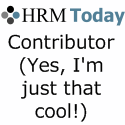When I was in College obtaining my first degree I worked with students. I was a Diversity Advocate and later became a Resident Assistant and Residence Life Coordinator within the dormitories of the university. This was probably the subconscious start to my career within HR and Learning Development.
I was an RA for 3 summers for a summer program called Groups, in which I also began my career. I still have much respect for the program. At some point in the beginning of the programs I would hold an orientation that many students would attend to ask questions, and address what they would face in their transition from High School to College life.
The Example I Used was this: Think about your life as a chalk board. In high school you had friends, classes, grades that you built up from the time you were in middle school. A reputation if you can imagine. Your teachers, family, friends all had opinions of your ethics, school work and personality. Now think of all the actions and activities you did. All through your schooling, you wrote on that chalk board that was your life. Everyone could see who you were, how you acted, what you weren’t, etc. etc. By the time you left high school it was filled for all to see.
Now you’re in college. Most people here do not know you. Your parents aren’t around to watch you from day to day. You have new teachers and acquaintances. You have a chance to erase that chalkboard and start over fresh. The difference now is that what you write on your board could become more permanent. What will you write on your board?
I tell this story to say that what you project is important.
Merriam-Webster Dictionary defines a Brand as:
1 a (1) : a mark made by burning with a hot iron to attest manufacture or quality or to designate ownership (2) : a printed mark made for similar purposes : trademark b (1) : a mark put on criminals with a hot iron (2) : a mark of disgrace : stigma <the brand of poverty>
2 a : a class of goods identified by name as the product of a single firm or manufacturer : make b : a characteristic or distinctive kind <a lively brand of theater> c : brand name 2
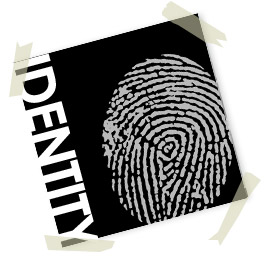
What's the impression you leave
Interesting information don’t you think? Merriam’s would lead you to the assumption that a Brand is not only actions taken, but something that could be considered permanent. Now Seth Godin is considered one of the definitive guru’s on branding and social media. There are plenty of others but when his name is brought up, people think: branding, social media, innovation, etc. etc.
Seth’s definition of a BRAND is the set of expectations, memories, stories and relationships that, taken together, account for a consumer’s decision to choose one product or service over another. If the consumer (whether business, a buyer, a voter or a donor) doesn’t pay a premium, make a selection or spread the word, then no brand value exists for that consumer.
Another interesting definition would you agree. My simple thought would be whether you like it or not, you have a brand. The way you walk, what you say, how you interact with the people around you and those you barely have contact with.
The Equation: Who you are + How you act + Someone’s Perception = Your Brand.
Many of us would disagree. Yet there is much truth to this. In an age where we have loads of personal and professional information being interconnected and advertised. Being passed across blogs, social media, chat streams, blog talk radio and everyday within limited/extrapolated interactions; we have and project a brand that burns itself into the people that we come across.

"today you are you, that is truer than true. there is no one alive who is youer than you." Dr. Suess
Whether you own up to the Brand-That-Is-You does not matter. There are those that will make decisions and assumptions based on that brand. It could be in an interview, at a networking event, in an employee intervention, or with your family in the confines of your own home. Regardless think about the impression that you leave. Think about what you write on your chalk board.
NOTE: I have been a writer for more than 9 years. I started blogging by writing poetry and short stories. Much of who I am is introspective and brash with a kind of self-conscious confidence. I am a smart ass that apologizes quickly. My personal feeling is that many people are like this, but often not honest about it.
 Re-thinking HR does not mean minimize the inward focus – it implies expanding the focus to look outward and into the work context. The “training mindset” needs to expand to embrace the concept of a “continuous learning” mindset. Learning in the work context requires innovative methods and technology that makes the right learning available to the right learner in the right amount at the right moment of learning need in the right format and to/from the right device(s). Oh…and to render those assets seamlessly, frictionlessly and ubiquitously, that truly “ain’t” your daddy’s HR Training Organization is it?
Re-thinking HR does not mean minimize the inward focus – it implies expanding the focus to look outward and into the work context. The “training mindset” needs to expand to embrace the concept of a “continuous learning” mindset. Learning in the work context requires innovative methods and technology that makes the right learning available to the right learner in the right amount at the right moment of learning need in the right format and to/from the right device(s). Oh…and to render those assets seamlessly, frictionlessly and ubiquitously, that truly “ain’t” your daddy’s HR Training Organization is it?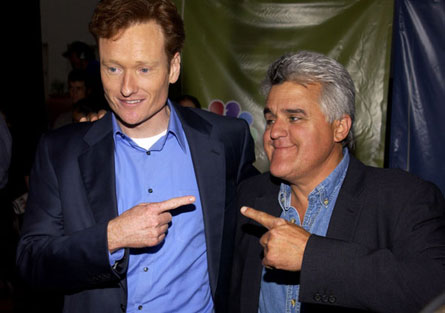
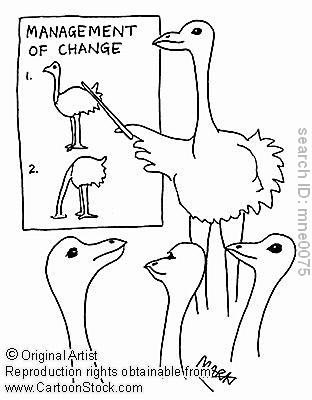 One of the benefits of being a part of a community like
One of the benefits of being a part of a community like 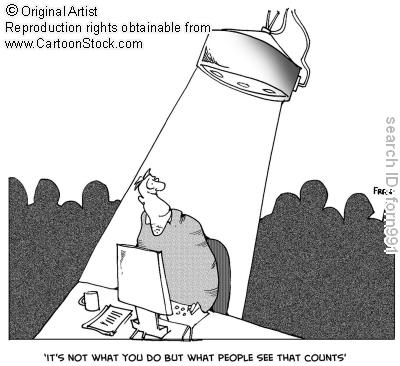 Nothing will happen over night, whether personally or in business. So I, like many of the people you directly work with, always ask for assistance and patience. This past year has brought difficult decisions and situations. The outlook for 2010 is not bleak yet it is not filled with sunshine. This year will be a long and tedious process. This time of transition will be at times easy and other times frustrating. However, it will always take the effort and engaged involvement. I do believe that through concerted efforts from every person in the community. We can and have helped each other to become better people.
Nothing will happen over night, whether personally or in business. So I, like many of the people you directly work with, always ask for assistance and patience. This past year has brought difficult decisions and situations. The outlook for 2010 is not bleak yet it is not filled with sunshine. This year will be a long and tedious process. This time of transition will be at times easy and other times frustrating. However, it will always take the effort and engaged involvement. I do believe that through concerted efforts from every person in the community. We can and have helped each other to become better people.
